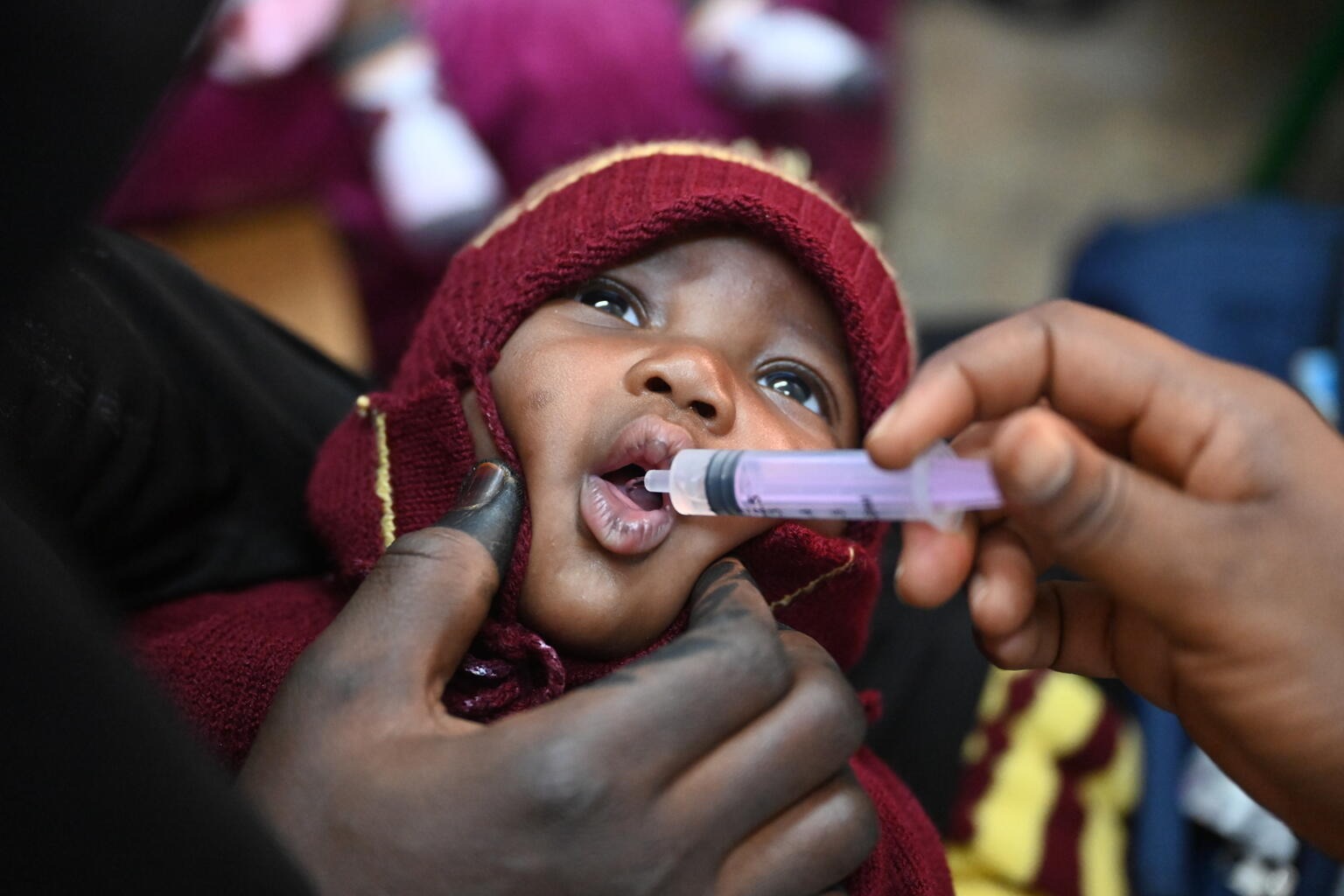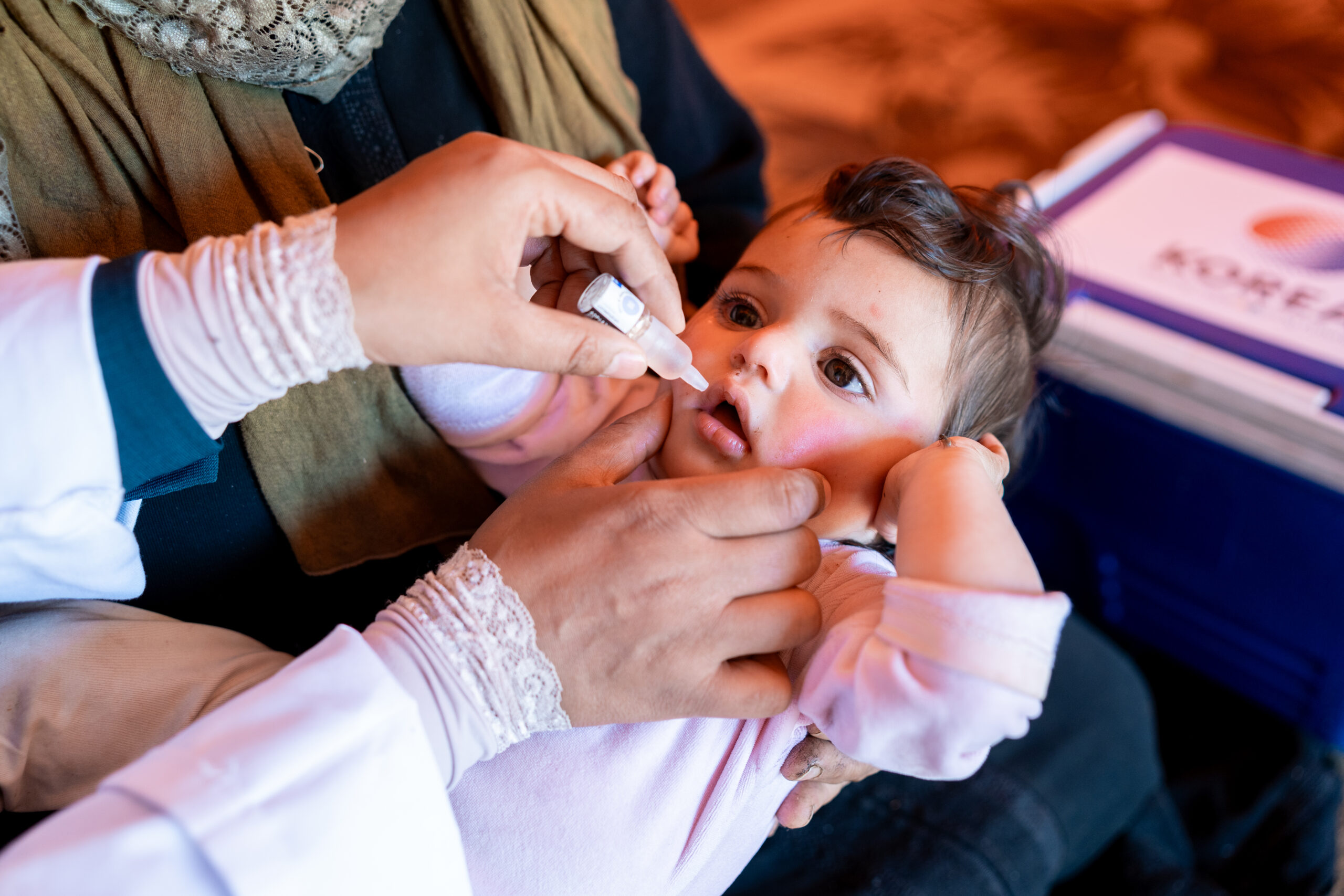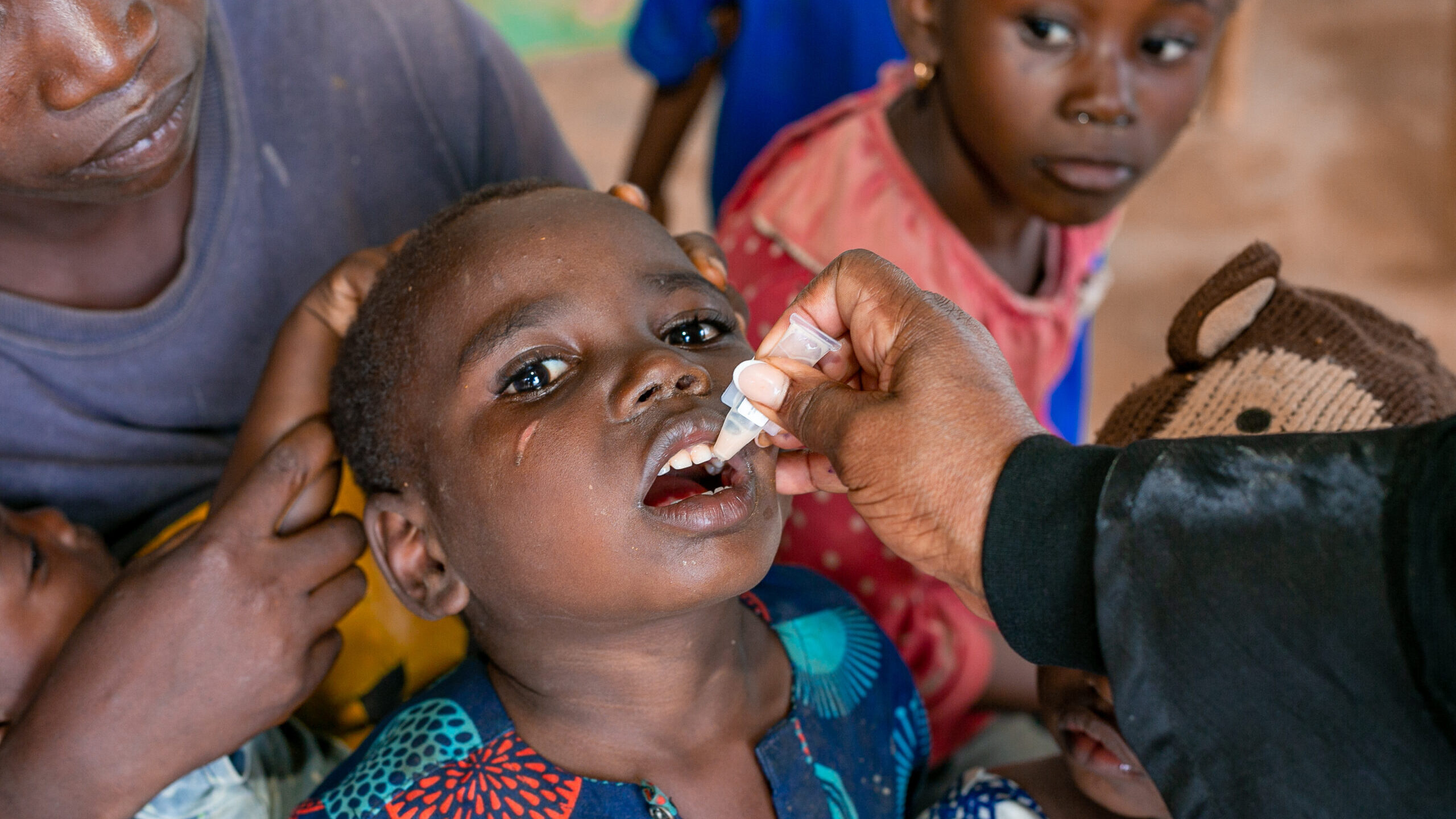From arrival to survival
Vaccinations for every child
No child should die from a preventable cause.
One of the greatest advances in global health and development, vaccines have been used for over two centuries to drastically reduce the damage done by diseases like polio, measles, and smallpox.
Vaccines offer invaluable life-saving protection to children and babies by sparking their immune response to fight off specific deadly diseases.
These childhood vaccines save more than five lives every minute, preventing up to three million deaths per year, allowing the world’s children to grow up happy and healthy.

Childhood vaccinations
Through the Global Polio Eradication Initiative, in which UNICEF has partnered with WHO, Rotary International, CDC, Gavi, and the Bill & Melinda Gates Foundation, the world has seen the number of children affected by polio reduced by 99 percent – cutting the number of polio-endemic countries from 125 to just 2.
Routine vaccination programmes remain under strain due to conflict, displacement, fragile health systems, and climate-related shocks. In 2024, 14.3 million children missed out on all routine vaccines – leaving them dangerously vulnerable to life-threatening diseases like measles and polio.
Please donate to give life-saving vaccines
In 2024, 14.3 million children missed out on all routine vaccines – leaving them dangerously vulnerable to life-threatening illnesses like measles and polio.
Your gift today can protect a child from deadly disease – donate now.

Working to end polio
In most people, polio presents no symptoms after infection. For some, polio symptoms present as a flu-like illness lasting roughly one week. In a small number of cases, the polio virus attacks the nerves in the spine and the base of the brain, potentially causing paralysis that develops over hours or days.
This paralysis is not often permanent, but it can create persistent problems with breathing muscles which can be life threatening. There is no cure for polio, so without routine vaccination programs, children and infants around the globe are left vulnerable due to this entirely preventable illness

Preventing the spread of measles
Measles is another highly contagious disease, which is spread via direct contact and through the air. While the number of measles cases around the world have fallen in recent years, progress toward elimination of the disease continues to decline. During 2020 more than 22 million infants missed their first dose of the measles vaccine – 3 million more than in 2019. This is the largest increase in two decades, creating ideal conditions for dangerous outbreaks to occur.
Before the introduction of the measles vaccine in 1963, our world saw an estimated 2.6 million deaths due to measles outbreaks each year. In 2018, there were more than 140,000 measles deaths globally – mostly among children under the age of five.
The MMR vaccine is 97% effective at preventing measles while also protecting against mumps and rubella. Reaching all children and infants with two doses of the measles vaccine or combination vaccines such as the MMR vaccine should be the standard for national immunization programs around the globe.


